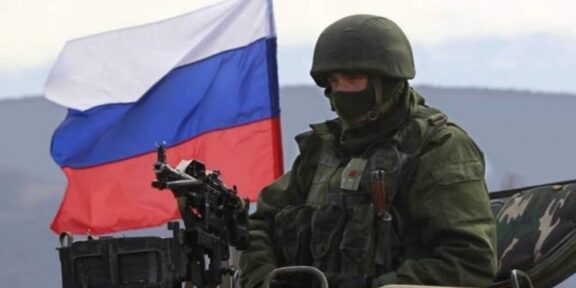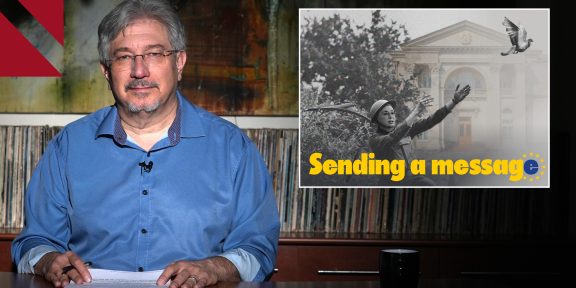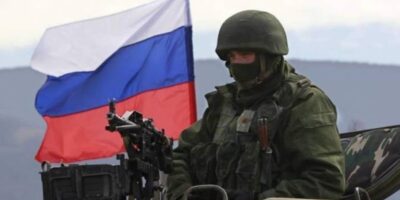United States Ambassador to Armenia Lynne Tracy speaks to CivilNet about how the 2021 parliamentary elections in Armenia were perceived in Washington. Ambassador Tracy gives her take on the ways the US is strengthening its partnership with Armenia, and how it’s balancing its interests with its values. She also discusses the US view of the Armenia-Azerbaijan conflict over Nagorno-Karabakh.
Below is the full transcript of the interview.
EMILIO CRICCHIO: Welcome to Civilnet. Today we are joined by the United States Ambassador to Armenia, Lynne Tracy. Ambassador Tracy has served in a number of countries, including Russia, Turkmenistan, Pakistan, and Kazakhstan. She has been serving as United States Ambassador to Armenia since 2019. Ambassador, thank you very much for your time.
AMBASSADOR: Thank you. It’s good to be here today. I really appreciate the opportunity, and I want to say one of the reasons why I am happy to be here at this moment in time is because we are looking forward, in September, to celebrating 30 years of U.S.-Armenia relations.
CRICCHIO: Perfect. So let’s start off with the 2021 Armenian snap parliamentary elections. These were complicated elections in Armenia, and many saw it as a referendum on the prime minister, a referendum on how the 2020 war was waged, and a referendum on the former administration’s really complicated issues. And now we are in a post-election situation which many still see as complicated. So, how did you view the contest? How did you view the outcome? And how do you think it was perceived in Washington?
AMBASSADOR: Well, I think if you look at our statement on June 21, we were very happy to see the OSCE ODIHR observers mission assessing the overall election environment as positive. The assessment that voters’ human rights and fundamental freedoms were generally respected— the fact that contestants were able to campaign freely, and then that the election day vote counting process was seen as positive—was for us very, very important.
At the same time, we noted that there had been a lot of heated rhetoric in the campaign, and so we wanted to encourage all parties to look ahead and to accept the results—although, any grievances were certainly eligible to be litigated in a grievance process—but, the importance of that process was very important to us. And in terms of Washington—President Biden and Secretary Blinken have both congratulated the Armenian people, in tweets and in calls to Prime Minister Pashinyan. We were very pleased to see, on behalf of the Armenian people, to see such a successful conduct of the elections.
CRICCHIO: And this is the second time an election has taken place in Armenia where international bodies, like you mentioned—the OSCE, the Council of Europe, the CSTO the CIS—all giving their stamp of approval. So, some analysts believe that Armenian democracy may be cementing itself, and I’m wondering: what do you think about that prospect?
AMBASSADOR: Well, what struck me in going out myself on voting day—the embassy had observer teams out, in addition to the OSCE observer mission—in talking to Armenians (who had observed earlier elections in 2018 and even farther back); they felt that they were seeing the best conducted elections that they had ever had the opportunity to observe. And when one thinks about what a difficult year this has been, with the pandemic and the war, and this very heated [election] campaign, to then see the Armenian people pulling off such a successful election—I think that right there speaks to the sense of democracy cementing itself.
Some of the other signals that I think are really important: we helped, through USAID, support technical elements of the campaign. We also helped with some of the debates that were staged. And it was really interesting to me to hear some of the feedback from prospective voters who watched the debates who really appreciated that element of democracy: of contestants coming and putting their views on the table, [voters] wishing maybe some contestants had shown up so that they would have had a chance to do some comparing and contrasting. But, you know, that interest in the viewpoints of contestants by the voters—to me, [it] is another really important signal that Armenian democracy is making progress.
CRICCHIO: And how will the U.S. navigate the region going forward? On the one hand, for whatever reasons, American policy is supposed to be even-handed. And on the other hand, it’s clear that Armenia in ways, some believe, is a democracy fighting almost multiple dictatorial movements. So how does the U.S., or any country to be honest, square its principles with its interests?
AMBASSADOR: Well, there is, I would say, some balancing. But, maybe the most useful way to understand the dynamics that you’re asking about, of principles and interests, is certainly for the United States: our interests and the pursuit of our interests are informed by our principles.
With respect to Armenia, what we see is a country that is committing itself to a democratic path, that is committing itself to values that the United States shares, a desire to tackle corruption. Those shared values and those shared priorities create a very strong basis for the relationship to grow and expand. It helps us bring in more resources, based on shared priorities.
We have other relationships, where we don’t have that same degree of shared values. And I think what happens in those kinds of relationships is that it winds up placing limits on where the relationship can go. Our strongest, our most enduring relationships and our closest partnerships are with countries that share our values and share our priorities.
CRICCHIO: The U.S. State Department Spokesperson, Ned Price, who I am sure you know, stated after the election that the U.S. is committed to strengthening the partnership with Armenia. Secretary of State Antony Blinken has also made similar remarks. And I believe Price added that that the U.S. is seeing progress in terms of a number of spheres like anti-corruption and other reforms. If Armenia is ticking these boxes, supposedly, can we expect greater engagement and also assistance from the U.S. in the future? And, particularly, in the border areas of Armenia where economic development is very important in terms of security issues and interests as well?
AMBASSADOR: So, I mentioned earlier that we are going to be celebrating, starting in September, thirty years of relations with Armenia. And, over the 30 years of partnering with the government, with non-governmental actors and, most importantly, with the Armenian people themselves, we have formed a lot of close relationships and partnerships. And along the way, the United States has invested nearly three billion dollars in Armenia.
Looking ahead, and as I noted just a moment ago, when we have those strong partnerships and shared priorities and values—it gives us that place to bring in more assistance. I would just say after a very difficult year because of the war, because of pandemic, we’ve still been bringing in assistance.
We brought in thirteen million dollars over the last year of additional assistance to fight COVID, and I am still seeking more help on that front as we continue to battle the pandemic. During the conflict, we brought in—during the midst of the conflict, I should say—we brought in five million dollars to help people who were displaced, people who were still in Nagorno-Karabakh. We are continuing to help in border communities, particularly in the Syunik area.
And then, just most recently, the United States helped stand up the Patrol Police Service. This is a close partnership that we have with the Ministry of Justice and the Police to bring a community-based policing approach, an approach that is aimed at building trust between the citizens and the police force. And the other area that we are working on in that space is anti-corruption institutions that we have been standing up.
And so that progress that we have been making in all of these areas or, the help that we have been giving to address the impacts the war—we have space to keep doing more. We are assessing what we can do. My expectation, because of the direction that Armenia is going, and the kind of progress and activities that I just outlined, is that we are going to be able to do more in the coming year.
CRICCHIO: There was a lot of “hoo-ha” [excitement] over the Biden-Putin meeting that happened. I am wondering, was Karabakh on that meeting’s agenda? Karabakh used to be a topic that the U.S. and Russia would, often times, actually agree on, but many feel that now there is some strain between Moscow and Washington. So, is it still the case that there is agreement or disagreement? What can you tell us about that dynamic?
AMBASSADOR: Well, first of all, President Biden has made it very clear that the United States is committed to European and regional security. I think that was the point that he made clear in his meeting with President Putin. It’s no secret that the United States and Russia have had a very difficult period in relations, [and] many deep disagreements. But, we have been able to cooperate, as both countries are Minsk Group Co-Chairs. So, we have found an ability, despite those disagreements, to cooperate together. My expectation is we are going to continue to find ways to cooperate on Nagorno-Karabakh.
CRICCHIO: In terms of the Second Karabakh War, which has been a defining moment in Armenia’s history: Armenia is in a state of military defeat, despite, even the economic and political difficulties. But what can the U.S. realistically do? Armenia is part of the CSTO, for example. It can’t receive military imports from the United States. So, what can the U.S. do to spare the region from another devastating war? Is the U.S. still committed to negotiations, that will determine, for example, the status of Nagorno -Karabakh? And I am also wondering: what kind of peace do you think is realistically possible?
AMBASSADOR: Well, Secretary Blinken said at the outset of his tenure, even during his confirmation testimony, that the United States and he saw the reinvigoration of our role in the Minsk Group as a very high priority.
With respect to the war, we don’t see that as resolved. It is a war, a conflict that has not been settled, and it is a conflict that requires a comprehensive and lasting settlement. A key element of that comprehensive and lasting settlement is addressing the status of Nagorno Karabakh, which has not been settled.
The other dimension of the war that we are still very focused on is continuing to pursue the release of all prisoners, [and] all detainees, as a humanitarian matter. Also, as a humanitarian matter, we think actions such as sharing mining information for demining purposes, as a humanitarian matter, is also something that’s very important that we are continuing to call for.
These are the kinds of issues that are necessary to be addressed to get to some of the other issues that are on the agenda. And it’s very clear that Armenians are looking ahead and seeking a peaceful future, and the United States wants to help support that.
CRICCHIO: Madam Ambassador, thank you very much for your time.
AMBASSADOR: Thank you.
CRICCHIO: Thank you for joining us on Civilnet.
Read the interview in Armenian.















